Constitution
Independence Day – a conservative day
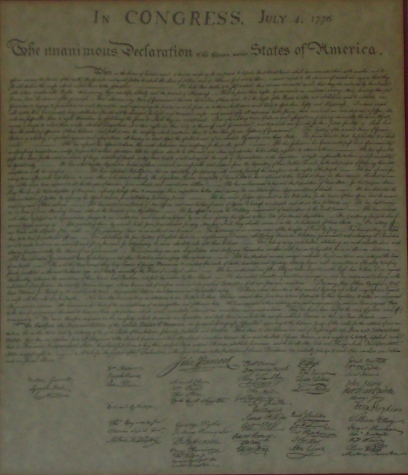
Independence Day is a conservative holiday, and promotes conservative values. The objective evidence is in—from Harvard University, no less. Today, the John F. Kennedy School of Government released a study showing that children who attended Independence Day events in just one year were 2 percent more likely to be conservatives, 4 percent more likely to vote conservative, and 1 percent more likely to turn out to vote.
Details of the Independence Day study
The study authors used the usual proxies for conservative and liberal politics: the Republican and Democratic Parties. They used an anti-proxy for going to an Independence Day event as a child: whether it rained in any given year. The study also assumed that most people do not move out-of-State between childhood and adulthood. (That might not hold today.)
The findings are surprisingly strong. One Independence Day season without rain, for a child younger than 18, will make that child more likely to be a Republican, to vote Republican, and to vote—period.
Furthermore, the effect sticks. Independence Day makes a lasting impression on a child—or it did in children born earlier than 1970. Children who had more chances to celebrate Independence Day grow up to be staunch conservatives, and no other adult will shake them of that.
But for persons born in 1970 and later, the effect is weaker. (The higher voter turnout effect remains; the conservative bias falls off.) The study authors suggest two possible reasons:
- Independence Day has become a less-intense holiday season.
- Independence Day has become far less political.
2010 District 2 Constitutional candidate Peter F. Boyce has already suggested a third reason. Today, Independence Day is too commercial. The Fourth of July, to some people, is a day to get a bargain in a store. They would do well to remember how this country came to be. Without this country, that store would not stand.
Your editor has a fourth reason. Regulations on Independence Day observance have now made the holiday more difficult to observe in the old spirit.
A personal perspective
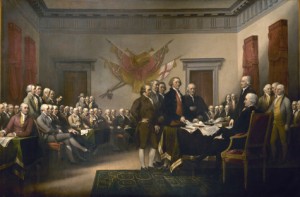
The Second Continental Congress observes the first Independence Day by signing the Declaration of Independence. Credit: John Trumbull.
Your editor was born in 1957. Every year on Independence Day, our family flew its US flag, if only from a door post bracket. Fireworks were another part of the celebration. Your editor lived in five neighborhoods before going off to Yale College. In one, all the children and adults bought fireworks on that special day. We brought them to one common place where we could set them off under supervision. Beginning in 1970, more and more cities banned home fireworks within their limits. And now, even the professional fireworks shows are disappearing. The ostensible reason is that the explosions can kill birds. But maybe the real reason is that the same ideologues who say they’re so concerned about the birds, don’t much want people celebrating such “hokey” days as Independence Day.
In any event, those childhood celebrations worked for your editor. That is why the title of this site is Conservative News and Views, and not Progressive or Internationalistic News and Views. But younger people haven’t had the chances to walk in an Independence Day parade or to put on their own fireworks show that your editor had.
A wider perspective
That the study would use the Republican and Democratic parties as proxies for conservatism and liberalism is telling. In the 1960s, the two parties were not very far apart. George C. Wallace famously observed that
There’s not a dime’s worth of difference between the two parties!
He ran for President in 1968 as an independent conservative. He almost cost Richard M. Nixon the election.
In 1972 the differences between the two parties became stark. George S. McGovern ran the most overtly socialistic and Communist-sympathetic campaign to date. Nixon shellacked him by default. The Republicans lost the 1976 election only because they nominated the incumbent, Gerald R. Ford, instead of the conservative champion, Ronald W. Reagan. Reagan won the next two elections, though no one thought he would.
But in the last twenty years, the Republicans abandoned their consistent advocacy of conservatism and American values. So the country got eight years of Bill Clinton and (thus far) three years of Barack Hussein Obama.
But now we have the Tea Party. This movement has proved that voters still like conservative values. They took the House of Representatives from the Democrats, and look likely to take the White House from them next year.
But the Tea Party must do more than get out the vote. They must reach out to the children, to educate them. To do that, they must plan activities that take the place of the Independence Day parades and barbecues of the Sixties and Seventies. Happily, the Tea Party knows this. Savvy Tea Party organizers include “family activities” to occupy the children while the adults make stem-winding speeches. They would do well to emphasize these “family activities” on Independence Day, and save the politicking for Labor Day and other days closer to the election.
An international perspective
The study authors suggest running studies like this in other countries that have their own Independence Days. They cite Bastille Day in France, and Freedom Day in South Africa. A French study should be especially instructive. It might predict whether France will be France for much longer, or instead become Algerie du Nord.
The authors forgot one country whose Independence Day is unusually intense: Israel. That country has nasty neighbors who mark Israel’s Independence Day (Yom Ha’Atzmaut) as a day, literally, of catastrophe (Naqba). It also has its own leftists and internationalists. These people lament the intensity of patriotic fervor of their fellow citizens. Israel recently celebrated its 63rd year of independence. It also has a cohort of citizens who came to the land from other countries after a very intense event affected them as children: the Six-Day War of 1967. That should provide an instructive data set.
More to the point, internationalists have a direct motive to stop people from observing Independence Day. They always suspected that the simple lessons of childhood, about what Boyce (in these pages) called the Simple Miracle of America, would be hard lessons for them to fight. Now they have direct evidence.
Featured image: a framed copy of the Declaration of Independence. Photo: CNAV
[amazon_carousel widget_type=”ASINList” width=”500″ height=”250″ title=”” market_place=”US” shuffle_products=”True” show_border=”False” asin=”B00375LOEG, 0451947673, 0800733940, 0062073303, 1595230734, 1936218003, 0981559662, 1935071874, 1932172378″ /]
Terry A. Hurlbut has been a student of politics, philosophy, and science for more than 35 years. He is a graduate of Yale College and has served as a physician-level laboratory administrator in a 250-bed community hospital. He also is a serious student of the Bible, is conversant in its two primary original languages, and has followed the creation-science movement closely since 1993.
-
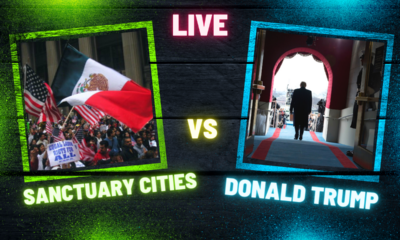
 Civilization5 days ago
Civilization5 days agoThe Theory and Practice of Sanctuary Cities and States
-

 Civilization5 days ago
Civilization5 days agoAmerica Can’t Secure Its Future on Imported Minerals
-

 Civilization5 days ago
Civilization5 days agoCompetition Coming for the SAT, ACT, AP, and International Baccalaureate
-

 Civilization3 days ago
Civilization3 days agoThe Minnesota Insurrection
-
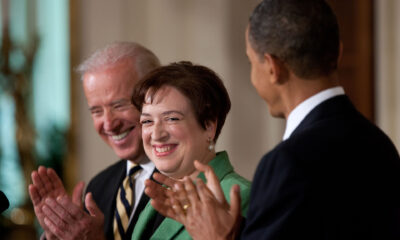
 Civilization3 days ago
Civilization3 days agoSupreme Court Orders CA Dems To Justify Prop 50 Maps
-

 Education2 days ago
Education2 days agoFree Speech Isn’t Free and It Cost Charlie Kirk Everything
-

 Civilization2 days ago
Civilization2 days agoThe Campaign Against ICE Is All About Open Borders
-

 Executive1 day ago
Executive1 day agoWaste of the Day: U.S.-Funded International Groups Don’t Have to Report Fraud



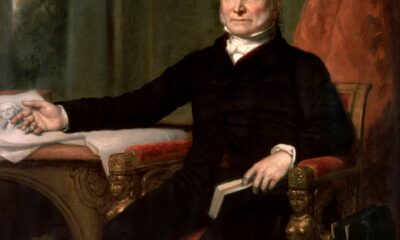

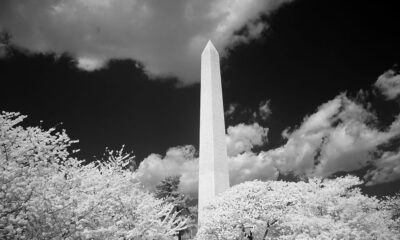







How lovely. Let’s bring our ideologies into everything. God forbid we should share some good times together.
Amazing, you teach someone about their country and they tend to like their country. For those that want to forget it is “…to the REPUBLIC for which it stand…” So a republican is someone who likes and wants to support the REPUBLIC they live in/under. Just like a Christian wants to be like God as Christian means Christ Like. They vote more, hmm isn’t it the liberals who run all the get out and vote campaigns.
You see when you are right and simple walk the path of truth, you do not need to fight and lie as like some have said. The truth has no agenda. Wake up people. PLEASE wake up. Just look at yourself and ask yourself if the liberal agenda works for you. If you have a clue what it is really about and have half a brain in your head you will figure it out.
Our lives have interesting parallels, Terry. I’m only 5 years younger, and I grew up in a conservative section of Queens, NY where we celebrated the 4th with neighborhood fireworks and John Phillips Sousa playing from the home at the top of the block where we gathered.
I’ll be the first to admit that despite the danger, it’s a lot more fun to shoot fireworks off with friendly neighbors than to stand among hundreds or thousands of strangers to watch the “official” show from a distance.
That said, the main reason these local celebrations are discouraged is that they pose a measurable safety and fire risk – I’m not saying that to be a killjoy – it’s just a statistical reality, with no anti-American conspiracy required to explain it. If you’re seeing fewer big shows in recent years, it’s because they’re expensive to put on, and in belt-tightening times it’s harder to find sponsors.
You and I were born within 20 years of WWII, and I’ve always felt that the patriotism of my youthful Independence Day celebrations was promoted by the generation before us, who lived through an attack on America and the challenges of a war for survival. As that generation aged the succeeding generations were more detached from those experiences, especially with the end of the draft making service in defense of our nation a personal choice instead of a shared obligation.
I disagree that Independence Day is a conservative holiday by nature – it takes a great love of this country and its founding principles to get engaged in these debates, regardless of which side we sit on. As for Reagan, he would fail the litmus test of “true” Conservatism that is being applied today. If you want to think of the spirit of Independence Day, remember that the Founders were men of thoughtfulness who disagreed, often vehemently, about many important issues, but could work together to achieve a common good through a truly long-term perspective. Contrast that with today’s scorched-earth partisanship and focus on nothing beyond the next election cycle, and it’s easy to see the lessons we need to be teaching in a few days.
So if statistical evidence were found that children who celebrated another holiday, say Christmas as an example, were more likely to vote liberal, would you declare Christmas a liberal holiday?
So a holiday that celebrates a *radical* changing of the status quo is conservative? Independence was gained by political progressives rebelling against a deeply conservative state. The constitution they created was an incredible, progressive statement. Sometimes the ignorance of modern conservatives amazes me.
What you call “progressive” with regard to attitudes in 1776 has nothing in common with progressivism in the 20th and 21st centuries. Nice try, but it won’t hold.
It’s a better description than calling the Founding Fathers conservatives. Conservatives, at the time of the Revolution were called “Loyalists”.
Also, let’s look at the 1912 progressive party platform (I’m just copying from Wikipedia):
A National Health Service to include all existing government medical agencies.
Social insurance, to provide for the elderly, the unemployed, and the disabled.
Limited injunctions in strikes.
A minimum wage law for women.
An eight hour workday.
A federal securities commission.
Farm relief.
Workers’ compensation for work-related injuries.
An inheritance tax.
A Constitutional amendment to allow a Federal income tax.
The political reforms proposed included
Women’s suffrage.
Direct election of Senators.
Primary elections for state and federal nominations.
The platform also urged states to adopt measures for “direct democracy”, including:
The recall election (citizens may remove an elected official before the end of his term).
The referendum (citizens may decide on a law by popular vote).
The initiative (citizens may propose a law by petition and enact it by popular vote).
Judicial recall (when a court declares a law unconstitutional, the citizens may override that ruling by popular vote).
However, the main theme of the platform was an attack on the domination of politics by business interests, which allegedly controlled both established parties. The platform asserted that
To destroy this invisible Government, to dissolve the unholy alliance between corrupt business and corrupt politics is the first task of the statesmanship of the day.[8]
To that end, the platform called for
Strict limits and disclosure requirements on political campaign contributions.
Registration of lobbyists.
Recording and publication of Congressional committee proceedings.
None of these seem like an anathema to any statement the Founding Fathers ever made, including the Declaration of Independence and the Constitution, nor can you argue with all of these (Progressives have clearly accomplished some good). Some of these positions even sound like things that the Tea Party espouses!
That’s very clever of you, seeing that the Founders aren’t around to defend themselves against your putting words into their mouths. About two-thirds (at least!) of the Progressive platform would be anathema to the Founders.
Well, there in lies the problem. Most of these things weren’t major problems at the Founding. Medical science wasn’t sophisticate, the industrial revolution had yet to start, and society was way too sexist to allow women to vote. However, given the problems of today, it would be difficult to say that the Founders wouldn’t attempt to respond to these problems.
We’re dealing in complete conjecture and speculation, but you just saying otherwise isn’t really an argument. It’s just contradiction.
The Founding Fathers did clearly know one thing: The only way to survive is to move forwards. When monarchy was no longer relevant to the British-American, they got rid of it and replaced it with something that was at the time the cutting edge of government, complete with a method of updating said government as the times changed. The Founders most definitely did not want American society to do anything, but progress.